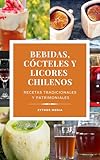
The Chilean causeo is a traditional dish in our cuisine, essentially a salad that often includes some kind of animal protein, such as pork trotters or beef, served cold. It’s typically enjoyed as an evening meal with fresh marraqueta breads.
Contents
How to make Pork Trotters Causeo?
In preparing causeo, the base usually consists of onions sliced into feathers or cubes, lemon juice, oil, cilantro, and chili sauce, to which meat from pork trotters or beef is often added. This can be further complemented with cheese and olives.
Nutritional Information
Category: Salads
Cuisine: Chilean
Calories: 300
Preparation: 30 minutes
Cooking: 90 minutes
Servings: 4 people
Chilean Pork Trotters Causeo recipe
Ingredients
- 4 pork trotters
- 3 cloves of finely chopped garlic
- 2 large tomatoes cubed
- 2 tablespoons of chopped cilantro
- 2 bay leaves
- 1 large onion, sliced into feathers
- 1 sprig of fresh parsley
- 1 tablespoon of oregano
- ½ green bell pepper cubed
- Juice of ½ lemon
- Wonder oil (or a similar vegetable oil)
- Red chili paste
- Salt
- Pepper
Preparation
- Thoroughly wash the pork trotters, removing excess moisture, and expose them to a gas flame to eliminate any remaining hair on the skin.
- Cut the trotters in half lengthwise and place them in a pressure cooker. Cover with a liter of water, add a teaspoon of salt, bay leaves, and oregano. Cover the pot and cook over medium heat for 90 minutes. Depressurize and cool to room temperature.
- Drain the trotters, debone, shred, and cut them into medium cubes. Reserve in a large bowl.
- Add onion, garlic, and green pepper to the bowl, along with chopped fresh cilantro. Mix everything with a wooden spoon.
- Add the chopped tomatoes, a splash of oil, lemon juice, and red chili paste to taste. Gently integrate all the ingredients and let it rest for a few minutes.
- Serve the pork trotters causeo as an appetizer, a starter, or a side dish to a main course.
Tips for preparing Chilean Causeo
When preparing causeo, while pork trotter meat is common, various variations allow for completely vegetarian versions by adding olives, or versions that include, for example, fresh cheese and/or hard-boiled eggs.
Did you know?
According to the Chilean Academy of Language, the word “causeo” derives from the Quechua word “kawsay,” which translates to “sustenance of life.”








